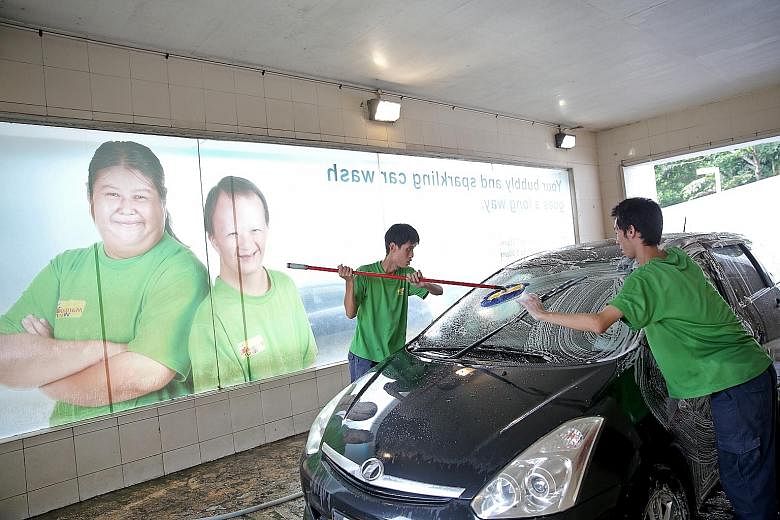Sticks should be brandished to encourage bosses to hire disabled people, rather than just offering carrots like financial incentives, a conference heard yesterday.
"The sticks could be taxes, having a quota for hiring persons with disabilities for the Government or large companies to adhere to, or mandatory inclusive training for your human resource department," said Dr Justin Lee, research fellow at the Institute of Policy Studies (IPS).
He was presenting findings from a study he carried out on inclusion in the workplace at an IPS conference at Orchard Hotel yesterday.
"Incentives and encouragement alone are unlikely to move the needle significantly in the employment of people with disabilities," he said.
Although more office jobs - including jobs for professionals, managers and executives - have been available for people with disabilities in recent years, disability associations say a large portion of jobs for them are still entry-level, manual positions largely in the food and beverage, service and hospitality industries.
Financial incentives, such as the $30 million Open Door Programme giving employers grants to send such staff for training or create a user- friendly workplace, encourage bosses to hire those with disabilities.
Dr Lee's study was commissioned by SG Enable, a government-established agency supporting people with disabilities. The study aimed to come up with guiding principles on what counts as inclusion, so there will be a way to determine whether "inclusive" policies or services for people with disabilities are actually successful.
Focus-group discussions and interviews were carried out last year with 47 people, comprising people with disabilities, employers, service providers and caregivers.
Dr Lee said respondents felt people with disabilities should make up 3 per cent of a company's staff, to reflect the estimated percentage of such people in the population. But this should apply only to big players like the Government or large firms.
"That would change the game," added Dr Lee. "From the perspective of a person with disability, it is, 'I have sent out 100 resumes and I don't get a job, so if legislation helps me, I will take it. Maybe now it's tokenism but perhaps the employers, who have been forced to hire me will, over time, start recognising that I am good and capable after all.' "
But Singapore National Employers Federation (SNEF) executive director Koh Juan Kiat felt a quota would be a "step backwards".
He said: "It is reported that quotas reduce the creation of good employment opportunities for persons with disabilities as well as lead to further stigmatisation of such persons."
He said SNEF supports active labour market measures that train disabled people to secure jobs and encourage companies to make workplace modifications.
Countries such as France, Germany, China and Japan have a quota system to ensure that people with disabilities get hired. Movement for the Intellectually Disabled of Singapore chief executive Keh Eng Song believes Singapore is not ready for that.
He said: "Recent news reports show Singaporeans do not really understand or interact with those with disabilities, so there is no point hiring them just because of a quota, then leaving them aside and not engaging them meaningfully."


